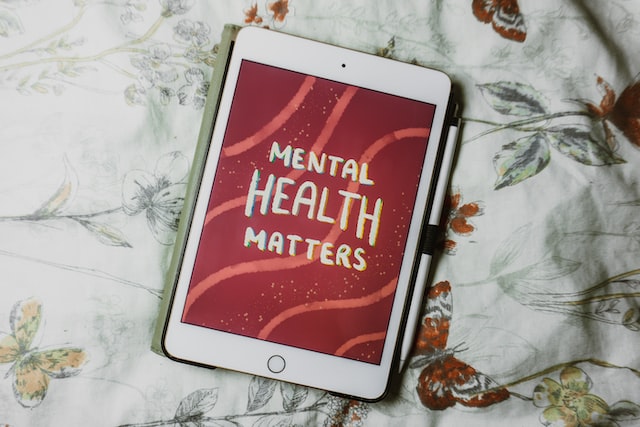Beyond resilience awareness to therapeutic insights.
With one in four people in the UK suffering as a result of mental health issues over the course of their lives and one in 6.8 people being directly affected at work, it’s becoming critical for employers to proactively address employee mental health. At Marshalls we’ve found that a well-being curriculum of support with diet, exercise, sleep and some basic cognitive behavioural therapy tips can be helpfully supplemented with tools, techniques and information that are almost a gateway to therapy. It’s clear that as employers, universities can and must play an important role in supporting employee mental health by offering guidance on, and signposting to therapeutic intervention.
Supporting resilience and work readiness is great. And universities are readily adopting techniques which empower people to function better in the workplace. But being ‘fit for work’ isn’t enough to ensure deeper employee wellbeing. Practical techniques to help people avoid negative thoughts and assumptions and kick periods of unhelpful behaviour, harness therapeutic practices, and know when to get professionals involved are important and impactful next steps.
How negative thoughts creep into the workplace
Have you ever had someone you know express the sentiment that “If I can’t do something perfectly, it’s not worth doing at all?” This is just one example of the damaging assumptions that can permeate our lives and our workplaces. They’re often centred around achievement (like the example above), acceptance or control. And they’re dangerous because they limit goal attainment, don’t reflect reality, overgeneralise, over-simplify, ignore ordinary experience, and can lead to extreme emotions. For mental wellbeing it’s important to support employees to root out and dispel these N.A.T.s (Negative Auto Thoughts) so they can reach their full potential and experiences greater mental wellbeing. And to identify these harmful assumptions, we need to explore themes in therapy, cognitive biases, our evaluation of ourselves, memories and derivatives of our core beliefs.
Identifying other signs of poor mental health
Guided evaluation and self-reflection or analysis is also helpful to root out other causes or triggers of mental illness. If your sleep, eating habits or irritation levels change, this is a good indicator that something could be wrong. We also need to think about our mindset. Are we having thoughts of hopelessness, failure, worry or suicide? Lastly, are we catastrophising or feeling restless, with difficulty focusing on tasks or conversations? Maybe we’re having problems at work and we’re just not getting as much satisfaction from our accomplishments as we did before. Perhaps we find ourselves being short with students, colleagues, or staff. We know that work can be a stressor on our mental health, so we should look at our university environment closely.
Mental health stressors at work
Poor working conditions (both physical and cultural) can impact our mental well-being. Poor lighting and ventilation, uncomfortable seating, long hours, unclear tasks, goals and targets, and an unsupportive or non-inclusive workplace community can all contribute. When a university has an unhealthy culture, this leads to demotivation, a sense of being undervalued and burnout, so the root causes need to be surfaced and addressed, and individual employees should not be held responsible for ‘getting better’.
Therapeutic models for mental health
A soft gateway to therapy includes techniques to combat unhelpful thinking patterns, such as the ABC model. Using this model, employees can identify the trigger for their thoughts, evaluate if they are true beliefs and then inspect the consequences for themselves and others. By applying ABC, it’s possible to look at a situation and decide if one was acting rationally. Then to change these beliefs, employees can expand the technique with D & E, which are short for Dispute and Exchange. D&E are core steps which allow employees to try out a new hypothesis once they find they’ve practised irrational thinking. This involves swapping out warped thinking for a new, more-balanced belief and then testing it to see if the outcomes are more favourable. Richard also advocates use of a work/life balance sheet which helps map how we are all practising body care, meeting achievement goals, connecting with others and fulfilling life enjoyment.
And of course, we must always be aware that self-help practical techniques may not be adequate to address some mental health challenges. To support both workplace and more holistic mental health, universities should provide or signpost resources for professional therapeutic services, including Accredited Counsellors and Chartered Psychologists.
About the author: David Marshall is the founder of Marshall E-Learning, who work with most universities in the UK and Ireland. One of Marshall’s most requested courses is on workplace mental health and David is currently developing a new offering on this topic alongside a whole programme of micro learning courses.
Marshall E-Learning can support universities to address mental health in the workplace with a framework of wellness and therapeutic e-learning. Our new module, written by Dr Richard Smith, a chartered psychologist in the NHS, launched in October 2022. The course is designed to demystify therapy and create a productive dialogue around mental health, and it has already been run successfully at the University College Dublin. Both practical and introspective, it’s a powerful tool that’s improving the lives of university faculty one learner at a time.
Many universities now take up all e-learning courses for one cost effective yearly subscription. To view the latest offering from Marshall E-Learning please visit www.marshallelearning.com.
